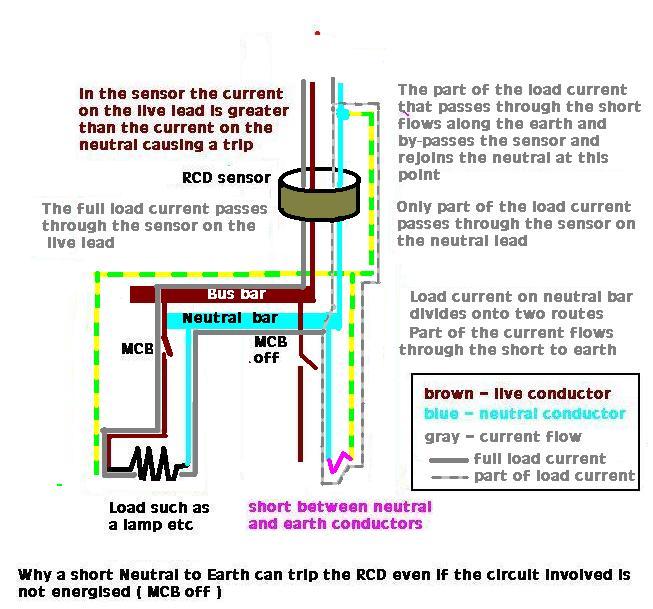Do you know of anything else I could do to try to isolate the fault?
It sounds like you have done everything that can be done without some knowledge and an Insulation Resistance tester.
Do go round the house one more time and check you have not forgotten something. It is easy to do.
Let me tell you a personal story:
I recently spent a whole day trying to find why my RCD was tripping - I am undergoing a large refurb of the kitchen at the moment, so I have been doing a LOT of additional wiring.
After a long tiring Saturday trying to plasterboard the kitchen ceiling, I slid into the bath, sipped a cool lager and the electrics tripped.

I did everything that I advise on this forum. Unplugged everything on the faulty (ring final circuit), turned off all DP switches. I did it all. Got out my IR tester, split the ring and found an earth - neutral fault on one part of the circuit. It's now 2am, bed time.
Woke up on Sunday. Took down all of my new plasterboard in the kitchen ceiling, tested and checked all of my new cabling. It all checked out.
Started working my way round the ring final, one socket at a time. Still could not find the problem. Was it a screw? Conductor touching a pipe???
Frustrated, just before bedtime on Sunday (and looking forward to another day fault hunting on Monday) I had a shower. Taking my towel from the towel rail I noticed the one thing that I had forgotten about - the electric element in the dual fuel towel rail. I had forgotten all about it,
and this is my own house!
The element had failed. I clicked off the FCU, reconnected and tested the ring and it was all working nicely again.
So, it was co-incidence that the element had failed at the same time as work was being carried out. But co-incidence does lead you down a long winding path into the distance.
So check, check and check again.
But it does sound like you need a competent electrician.


